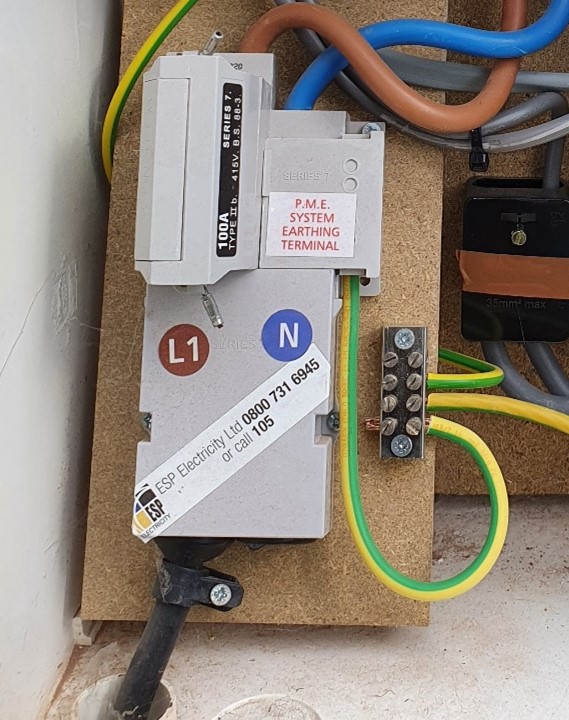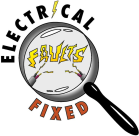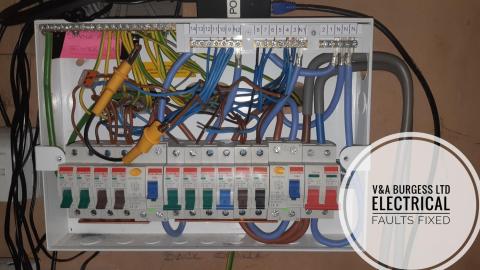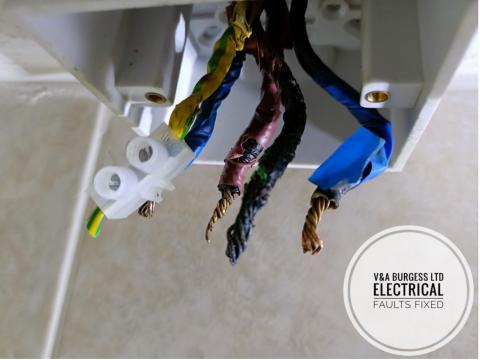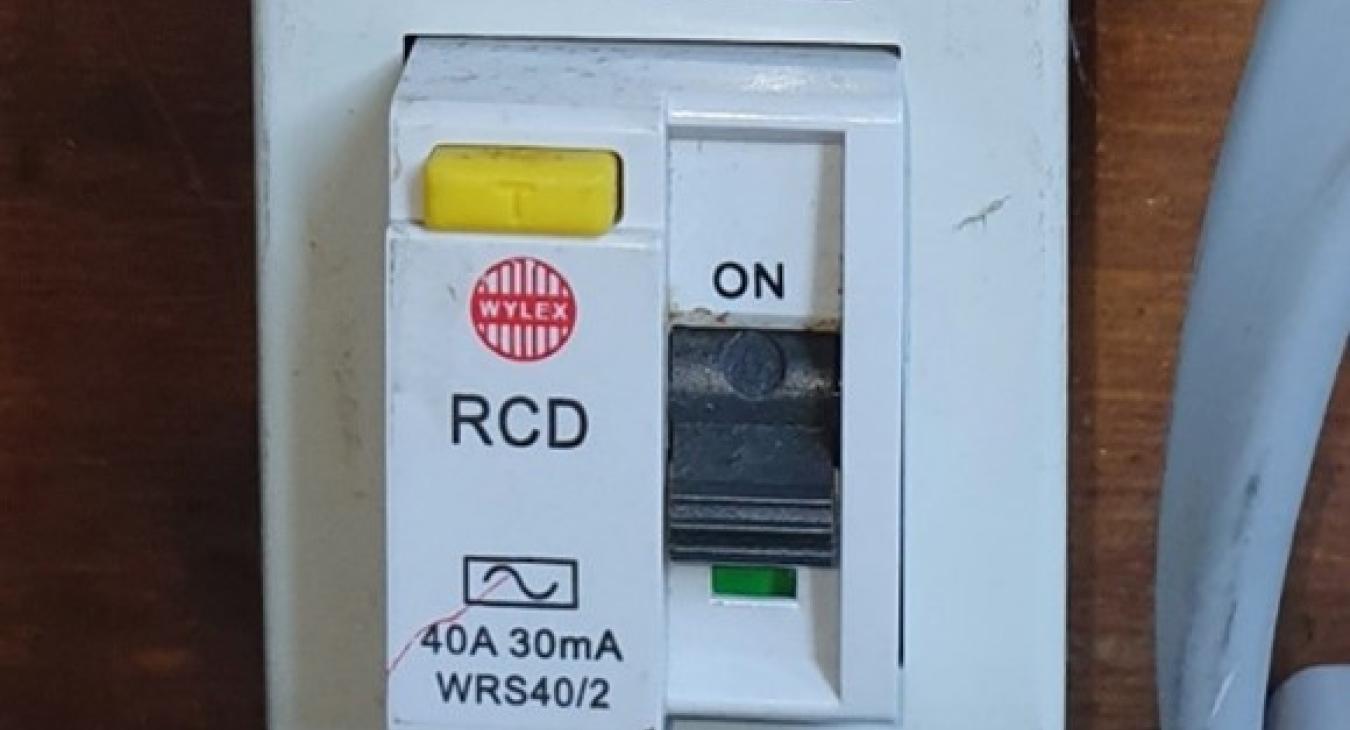
Table of Contents
- What is an electrical fault?
- What kinds of electrical fault are there?
- Short Circuit
- Insulation Fault
- Broken Ring Circuits (Sockets)
- Loose Connections / Overheating
- Overloaded circuits / Cables
- No Earth or Broken Earth
- How do we get electrical faults repaired?
- What does it cost to have repairs done?
- How quickly can electrical repairs be done?
1) What is an electrical fault?
An electrical fault is a situation on an electrical circuit causing the circuit to function incorrectly, these can cause protective devices like trip switches, circuit breakers and fuses to blow.
Electrical faults can also go undetected by fuses, consumer units, fuse boxes and people.
Some electrical faults can only be discovered by a professional electrician. These are the most dangerous kind of electrical issue as there is no protection in your electrical system against these types of faults.
Back to top2) What kinds of electrical fault are there?
“HOW DO I KNOW IF I HAVE AN ELECTRICAL FAULT” . Well, there are many kinds of electrical fault that can occur in an electrical system. The kinds of issues can be split into faults that will be noticed and cause some kind of action from your electrical system and the kind of faults that will most likely go unnoticed or unchallenged until they become a serious issue.
Typical electrical faults that cause a reaction are:
Back to top3) Short Circuit
Where electrical current is allowed to flow directly to neutral or to earth without a resistance in its path. This can occur when an appliance goes bad, a nail or screw is put through a cable or where two wires otherwise touch when they should not! When a short circuit occurs, assuming your electrical system has been correctly designed and installed, a fuse should blow, a circuit breaker should trip or an RCD switch should operate to dispose of the large fault current and cut power to the circuit almost immediately.
Back to top4) Insulation Fault
Where there has been a breakdown in the insulation of the wiring or circuit conductors (Line and Neutral) and there is some current leaking to earth. Perhaps not enough to cause the operation of a circuit breaker or a fuse to blow but possible enough to operate an RCD switch. In these circumstances Fault finding by an electrician specialising in testing and inspection is often required to pinpoint the issue on the circuit and make the necessary repairs.
An insulation fault can occur when an appliance begins to fail, water enters the electrical system in some way, rodents damage cables or general degradation of the cable fabric such as an aging electrical system.
Typical electrical faults that may not be detected:
Back to top5) Broken Ring Circuits (Sockets)
Just after the second world war, there was a copper shortage which led to the need to save on copper where possible. It was decided that instead of using a large thick copper cable to power sockets in our homes that we could manage with a much thinner wire. How? Well, instead of a large cable leaving the fuse box / consumer unit and heading to each of the electrical sockets and ending at the farthest socket we could use a much thinner cable BUT it had to return from the farthest socket back to the consumer unit / fuse box THUS FORMING A RING.
This is great in theory, however in practice things are different. Over time and use, electrical connections can become loose, DIY electrical work and other additions can mean that these circuits become broken in some way. Now, if a circuit is broken it should stop working or be detected somehow by the consumer unit / fuse box, right?
Yes, but not with a RING circuit.
When a RING is broken, the consumer unit / fuse box cannot detect it. This situation is a problem as it can easily leave the circuit open to overload and electrical fire so if your property has RING circuits for the sockets then you should strongly consider having an electrical inspection carried out.
https://www.electricalfaultsfixed.co.uk/electrical-safety-checks-eicr
Back to top6) Loose Connections / Overheating
That is right folks, there is no way currently for your electrical system to detect loose connections or overheating on your cables, sockets, switches, shower pull cords or other electrical accessory. The only way that these can be checked is by asking a qualified electrician to come around and check all the connections whilst performing an in-depth electrical inspection for you. Typically, a 3 or 4 hour job done properly. A consumer unit / fuse box cannot (at the time of writing) detect excessive heat on circuit or loose connections.
Back to top7) Overloaded circuits / Cables
If your home has been owned prior to you owning the property then you may have no idea if any unauthorised electrical work has taken place. It is not uncommon for DIY enthusiasts to extend and alter electrical circuits assuming that what they are doing is safe but with no knowledge of the wiring regulations and how to test their work following such additions or alterations. Only an electrician carrying out a thorough inspection can detect such issues. Typical electrical inspections will take several hours, cost a few hundred pounds and produce a 6 to 8 page report detailing any issues in your system.
Back to top8) No Earth or Broken Earth
Yes. That little green and yellow wire. What does it do? Does it matter?
Well, in most circumstances your electrical installation will continue to function without an earth, you may not even know in fact. When, however, a fault develops there can be serious consequences for having no earth to the electrical installation or its circuits. This is another fault that you would never know was lurking unless an electrician inspected and tested your electrical installation for you.
When an electrical fault develops the Earth wire carries electrical current safely away to earth until the fuse or circuit breaker protecting the circuit has time to operate. IF there is no earth then metal parts in your home can become live AND REMAIN LIVE until the circuit is manually turned off. This is a potentially lethal situation and yet another great reason why we would want to inspect and test every 10 years or so
Back to top9) How do we get electrical faults repaired?
You find an electrician that you can trust, have a chat with them about any issues or concerns that you have with your electrical system and go from there. If you have an electrical fault that you know about then your electrician can find where the issue is and repair on site or quote to repair if the issue is going to be more involved.
In any event, it is a really good idea to have an electrical inspection carried out every 10 years, if an electrical fault has been found on one circuit, you are purchasing a home or selling.
Once an inspection has been carried out your electrician will tell you if any work needs to be done in order to make your electrical installation safer. They will also let you know if any items in the electrical report are dangerous, potentially dangerous, or simply require an upgrade or recommended improvements.
Back to top10) What does it cost to have repairs done?
Check our costs page for typical repair costs. Without knowing the kinds of repairs that are required it is impossible to quote for repairs. In depth repairs involving tracing wiring and lifting floors will be more costly than swapping faulty switches and sockets. 😊
https://www.electricalfaultsfixed.co.uk/costs
Back to top11) How quickly can electrical repairs be done?
Your electrician will advise of their timescale and likely length of the job. Typical minor electrical repairs can take a few hours. More major repair works such as rewiring a circuit, replacing a consumer unit, or rewiring can take several days.
So stop wondering “HOW DO I KNOW IF I HAVE AN ELECTRICAL FAULT” and get in touch to book your electrical inspection.
https://www.electricalfaultsfixed.co.uk/contact
11.1) Our contact info:
📧 Fill in our contact form here.
Back to top